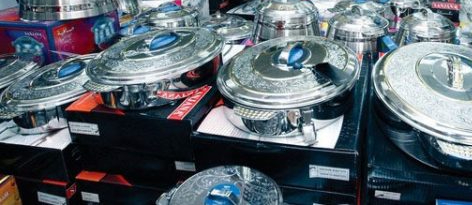September 23, 2019
Although sporadic demonstrations in various Egyptian cities are only hundreds in each, and although the road to overthrow the dictatorial rule of General Abdel Fattah al-Sisi still seems very long, observers consider the most important question at this stage is: What do the demonstrators in Egypt need to avoid the 2011 revolution setback?
In February 2011, when former President Hosni Mubarak announced his stepping down from power, the Egyptian revolutionaries considered their revolution to be successful, and it was time to distribute the spoils and compete for power, a competition that allowed military rulers to return again after nearly two years, with an iron fist more brutality.
In fact, the Egyptian revolutionaries had no vision of the post-Mubarak era, and there was no prior agreement on a road map.
On March 19, 2011, the ruling military junta temporarily held a referendum on a constitutional declaration. This constitutional declaration saw considerable disagreement among comrades of Tahrir Square who overthrew Mubarak.
Disagreements between the comrades of the revolution erupted just two months after Mubarak stepped down, because none of the participants in the demonstrations that toppled Mubarak had any vision of the phase following Mubarak’s overthrow.
The revolutionaries also had no strong media institutions. This allowed journalists and broadcasters loyal to the Mubarak regime to change their positions and speak in the name the revolution, and later they were a thorn in the back of the revolutionaries and their damands.
In fact, ensuring that sacrifices are not lost is a key point in encouraging Egyptians to take to the streets, so protesters need to be confident that a new setback to the revolution will not be repeated.
1. Reconciliation
Many Egyptians need a kind of political or societal reconciliation between the components of the 25 January 2011 revolution in order for these forces to regroup in the fields of demonstrations.
In the years since 2011, there were many differences between the political forces that stood together in Tahrir Square to end Mubarak’s rule.
Many young liberals see that the Muslim Brotherhood sold their blood and did not support them during their clashes with Egyptian police in the clashes of Mohamed Mahmoud street.
Young Christians also consider that many abandoned them during the events of Maspero, and that the reactions of political forces were lackluster.
Salafis also consider that liberals did not care much for their slaughter in the events of the Abbasiya square by thugs and army forces.
It is not much different when the Brotherhood says that liberals and leftists have been silent on killing hundreds in the square of Rabaa Adawiya and Ennahda.
All these disagreements have caused some political powers not to stand together, nor to participate shoulder to shoulder in popular events.
The demonstrators need to bring Egyptian political forces again together in the face of the dictatorship of military rule in the country.
2. Vision
Many young Egyptians aspire not to repeat the 2011 tragedy when political forces disagree on the country’s future less than two months after Mubarak’s ouster.
Many young people looked at the Sudanese model gloriously, when the length of the protests (about four months) contributed to the Sudanese coming out with a unified vision of civil rule in Sudan.
A single vision of the country’s future is a guarantee that participants in the demonstrations will not differ, and not to allow a new counter-revolution.
3. Institutionalizing the Revolution
Egyptian demonstrators need to communicate effectively with the people to persuade them to join them and abandon the regime, as well as to shape the future of the country, and the adoption of laws or constitutions.
In short, the demonstrators need revolutionary institutions in several fields that preserve and advance the gains.
The most important of these institutions may be media, legal and political.
Revolutionary media institutions can provide a means for demonstrators to communicate effectively with the different forces of the people.
Most of the opposition satellite channels suffer from many problems, the most prominent of which is that they are directed to certain factions of the Egyptian people, are not very professional, and they are broadcast from outside the country, which makes their task difficult.
Political parties in Egypt are very marginalized and weak, unable to produce qualified figures to assume political responsibility, or even produce clear political visions.
The needs of the Egyptian revolutionaries vary from different institutions, to the extent that they need professional technological institutions capable of providing a means of communication between them if the Egyptian regime decided to block sites or cut off communications and the Internet as in 2011.
4. International Communication
Communicating with the international community is important for demonstrators at home, to explain their visions, gain international support, and isolate the regime internationally.
Despite the presence of many Egyptian opponents abroad, coordination and communication is very weak, and political differences among them have hindered the establishment of a strong alliance that reflects the hopes of the Egyptian people.
5. Popular Mobilization
One of the most important points in the success and security of the Egyptian protesters is the mass mobilization, where the police usually refrain from suppressing large demonstrations.
The huge crowd is one of the guarantees of a message that the Egyptian people no longer want General Sisi to remain president.
But the Popular Mobilization’s problem is that it is met with widespread fears of brutal security repression, especially since in 2013 security forces had already systematically killed hundreds of demonstrators after July 3, 2013.
It may still be a long way to restore civilian rule in Egypt instead of military rule, but Egyptian demonstrators fear they will succeed in reaching a civilian rule and then let it slip back into the hands of the military men.





Recent Comments